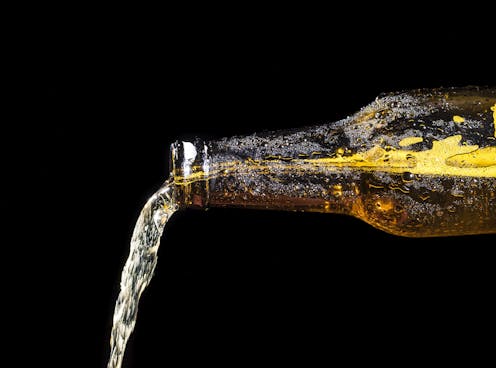Alcohol use more likely among Black youths at racially segregated schools
- Written by Guangyi Wang, Research Specialist, University of California, San Francisco

The Research Brief[1] is a short take about interesting academic work.
The big idea
Black youths who attend racially segregated schools are more likely to have drinking and behavior problems during childhood than Black youths in less segregated schools. This is according to a new study[2] we conducted using national survey data[3] from 1997 to 2014.
School segregation, defined as the physical separation of students in schools based on their race, was ruled unconstitutional in 1954 as part of the U.S. Supreme Court’s Brown v. Board of Education[4] decision. Consequently, about 1,000 districts nationwide were under court orders to desegregate.
However, school segregation has increased since 1991[5], when the first of a series of court decisions[6] allowed districts to be released from court-ordered desegregation. Highly segregated schools – where less than 10% of students are white – increased from 5.7% to 18.6% of all schools[7] – from 1988 to 2013.
Our study is among the first to explore how this recent segregation affects the health of Black children. It examines whether the health of Black children in districts that were released from court-ordered desegregation earlier is different from those in districts released later.
Our research team analyzed data on school segregation levels and health outcomes for about 1,248 Black children ages 5 to 17. We measured school segregation using the dissimilarity index, which indicates the proportion of Black or white students who would need to move to a different school to make all schools in a school district have the same student racial distribution.
We found that the more segregated a school district, the more likely Black students were to have behavioral problems, and the more likely Black students older than 12 years were to drink alcohol. For Black girls, the more segregated the school, the likelihood of having drunk alcohol rose at twice the rate it did for Black boys.
Why it matters
Earlier studies about school desegregation in the 1960s and 1970s found that it led to improvements in Black people’s well-being, such as higher educational and occupational attainment, better self-rated health[8] and reduced teen pregnancy rates[9].
Yet some scholars have argued that segregated schools can have certain benefits[10]. For example, school segregation may have protective effects as Black youths in predominantly Black schools may face less interpersonal racism from white students and teachers than if they went to desegregated schools.
On the other hand, school segregation is a manifestation of structural racism, such that highly segregated schools are often underfunded, with more crowded classrooms[11], less experienced teachers and high teacher turnover. Segregated schools also tend to have harsher school discipline[12].
These stressful environments can increase mental and emotional challenges for Black youths, making them more likely to develop unhealthy coping behaviors like drinking alcohol. In addition, segregated schools are more likely to be in segregated neighborhoods, which are more often targeted for alcohol advertising and have substantially more liquor stores[13], making it easier for Black youths to obtain alcohol.
The results of our study suggest that the effects of structural racism and low school resources in segregated schools may be greater than the potential for reduced interpersonal racism.
What still isn’t known
This study did not examine why well-being was worse among Black youths in more segregated schools. For example, it didn’t examine whether it was because of fewer school counselors, higher stress levels or broader systemic factors. It also did not examine health among other groups like white, Hispanic or Asian children.
What’s next
Our team’s next steps are to explore the reasons school segregation affects young people’s well-being, not only for Black youths but also for white youths and other youths of color. Additionally, we plan to examine the long-term impact of school segregation as children transition to adulthood.
References
- ^ Research Brief (theconversation.com)
- ^ new study (doi.org)
- ^ national survey data (psidonline.isr.umich.edu)
- ^ Brown v. Board of Education (www.history.com)
- ^ has increased since 1991 (www.pbs.org)
- ^ court decisions (doi.org)
- ^ increased from 5.7% to 18.6% of all schools (www.civilrightsproject.ucla.edu)
- ^ higher educational and occupational attainment, better self-rated health (doi.org)
- ^ reduced teen pregnancy rates (doi.org)
- ^ benefits (doi.org)
- ^ underfunded, with more crowded classrooms (www.jstor.org)
- ^ harsher school discipline (www.msnbc.com)
- ^ targeted for alcohol advertising and have substantially more liquor stores (doi.org)
Authors: Guangyi Wang, Research Specialist, University of California, San Francisco

